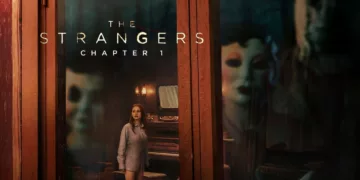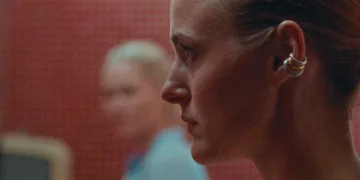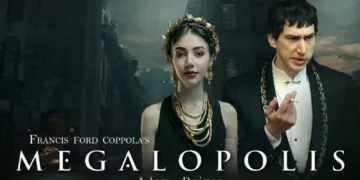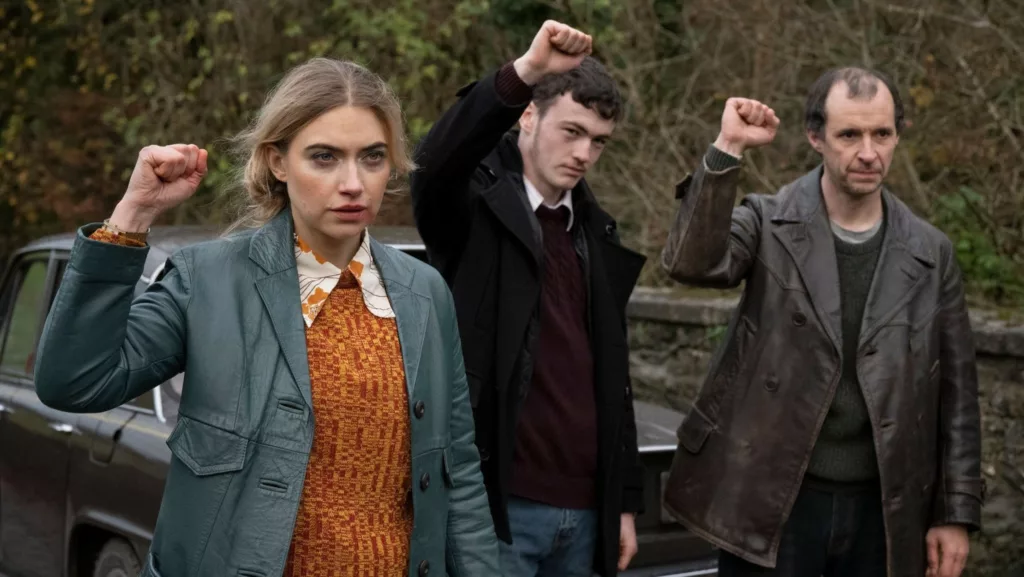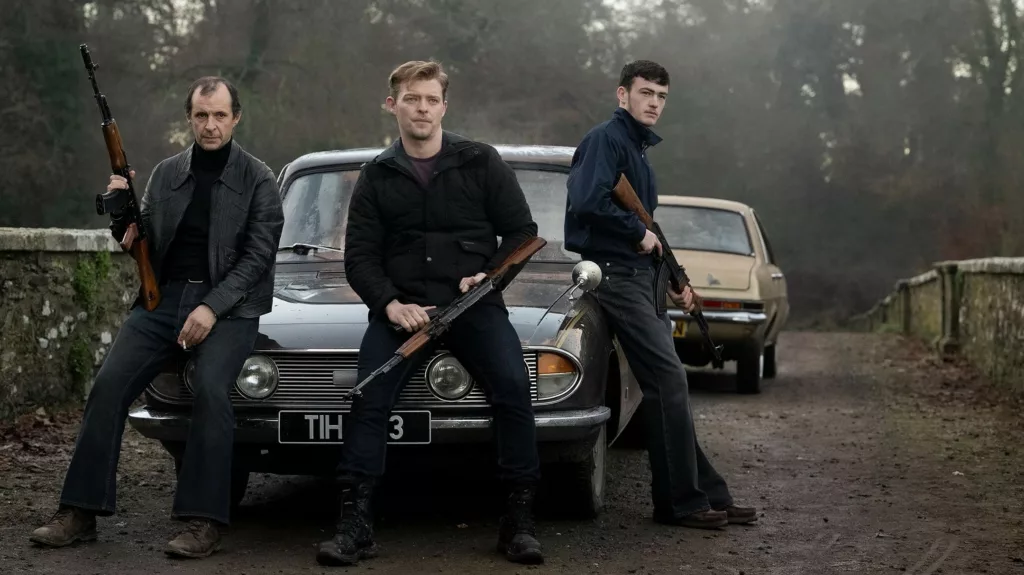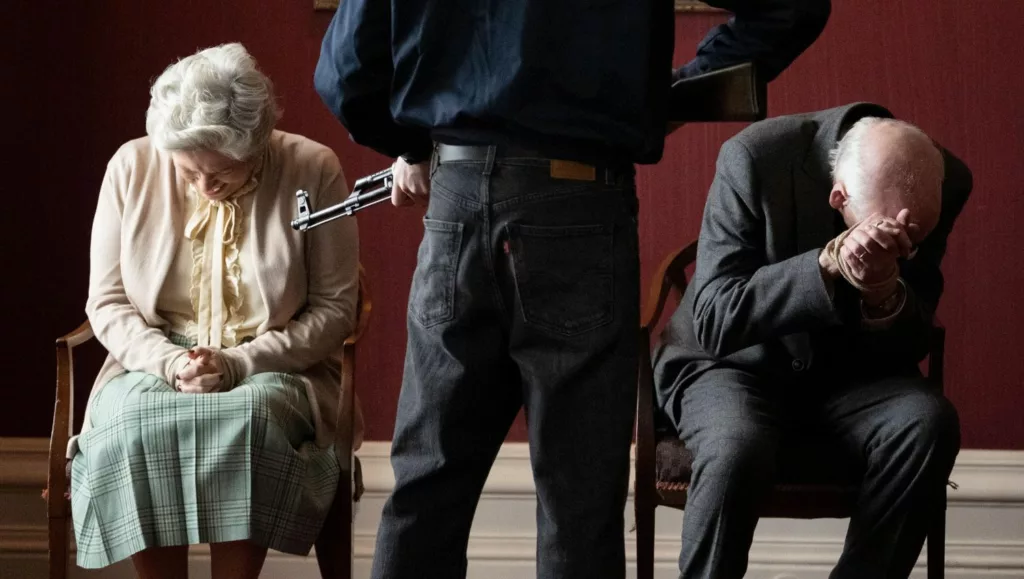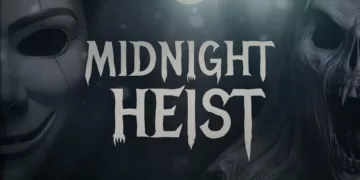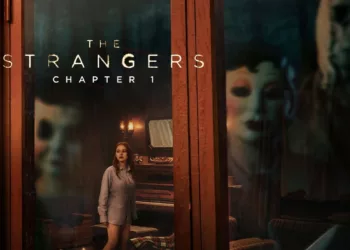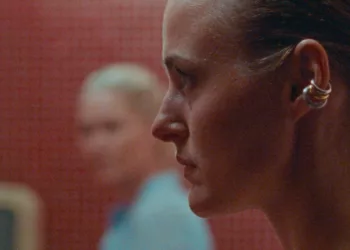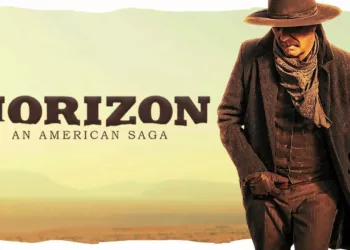From the fertile creative terrain of Ireland emerges Baltimore, a searing exploration of ideological fervor directed by the visionary duo of Christine Molloy and Joe Lawlor. This finely-crafted cinematic opus bears the distinction of being inspired by the audacious exploits of Rose Dugdale, the English rose whose thorny path to radicalization ultimately led her to orchestrate one of history’s most brazen art heists.
Tracing Dugdale’s metamorphosis from privileged debutante to ardent Irish Republican Army revolutionary, the film reimagines the daring 1974 raid on the opulent Russborough House. There, under Dugdale’s direction, a cadre of impassioned operatives liberated a staggering 19 priceless masterworks, including canvases by Rubens and Vermeer, in a militant gambit to secure the release of imprisoned comrades.
With Imogen Poots’s tour-de-force embodiment of the enigmatic Ms. Dugdale at its molten core, Baltimore beckons viewers into the crux of one woman’s fervid crusade against institutionalized injustice. Brace for a descent into the searing echoes of the Troubles.
Momentous Melée: Plundering for a Cause
The narrative thrust of Baltimore detonates amidst the brazen 1974 art heist that secured Rose Dugdale’s infamy. Clad in a vibrant red wig and aflame with revolutionary zeal, the erstwhile heiress masterminds the armed infiltration of the illustrious Russborough House. Her coordinated team of IRA operatives – comprising hardened soldier Dominic, the impetuous Martin, and Rose’s lover Eddie – swiftly subdue the aristocratic inhabitants and abscond with a breathtaking haul of 19 priceless paintings by legendary masters.
This daring coup, however, merely ignites the slow-burning fuse. In the ensuing tumult, Rose and her compatriots promptly abscond to a remote coastal cottage, the converted safe house where their dangerous gambit shall persist. There, away from prying eyes, the revolutionaries formulate their negotiating strategy – to leverage the invaluable artworks as crucibles for the release of imprisoned IRA comrades from British captivity.
As the tense stalemate stretches across nine precarious days, fissures within the group’s resolute facade gradually materialize. The principled Dominic, having dedicated his life to the righteous struggle, finds himself torn by Rose’s unwavering ruthlessness. The hotheaded Martin strains against the forced sojourn’s mounting desperation.
And Rose herself, her audacious bravado obscuring a zephyr of doubt, must confront profound moral quandaries and vulnerabilities – not the least being her surreptitious pregnancy, a burgeoning life amidst the machinery of destruction she has catalyzed.
This powder keg of convictions, sacrifices, and self-examining identities propels Baltimore’s searing narrative core. No quarter shall be ceded in the ultimate ideological conflagration.
Exhumed Legacies: Illuminating the Souls Beneath
At the blazing epicenter of Baltimore stands Rose Dugdale, the defiant spirit whose ardor for revolutionary upheaval scorched an indelible mark upon history’s annals. In the seamless conviction of Imogen Poots’s transfixing performance, we bear witness to a woman riven by the tumult of her own metamorphosis – the privileged heiress who willfully immolated the silken thread of her birthright to embrace the sword of Irish republicanism.
Poots charts Dugdale’s transformation with a mesmerizing discipline, her flinty countenance articulating the imposing edifice of certitude shielding the cataclysmic crucible that stoked her radicalization. Flashes of her idyllic youth, tinted by intimations of burgeoning disillusionment, tantalizingly intimate the fissures that would ultimately rupture into Dugdale’s full-fledged repudiation of the inequities plaguing the societal order.
Yet even amidst the feverish conflagration of her militant ethos, Poots imbues Dugdale’s revolutionary zeal with filigreed tendrils of vulnerability. In hushed soliloquies addressed to her unborn child, we glimpse not merely the revolutionary firebrand, but the agonies of an impending mother navigating the tumultuous orbit of her convictions. And in the haunted specters of hallucination that accost her mind’s asylums, we discern the specter of creeping doubt that eternally shadowed her incendiary warpath.
Supporting this searing character study is an ensemble of cohorts and compatriots deftly etched to illuminate the intricacies of Dugdale’s doomed quest. Tom Vaughan-Lawlor’s Dominic, the principled arbiter of pragmatism in their ranks, articulates the ponderous moral reservations gnawing at their revolution’s molten core. The hot-tempered menace of Lewis Brophy’s Martin, conversely, personifies the unraveling volatility that their violent endeavors inexorably breed.
And hovering in the periphery, the lingering presence of Jack Meade’s Eddie – father of Dugdale’s child and the uniting filament between her dueling identities – proffers a spectral reminder of the intrinsic fragilities that humanity dare not discard, even when steadfast upon the trail of justice.
Within this intrepid cadre of personas, Baltimore excavates the catacombs of human spirit, where the tides of ideological fervor rise and thrash against the shoreline of base human frailties. What emerges is a dimensional tapestry of souls in exquisite, inexorable conflict – infusing a scorched historical canvass with the searing reverberations of life itself.
Transcendent Aesthetics: A Symphony of Cinematic Mastery
To enshrine the smoldering embers of Rose Dugdale’s explosive saga in its full philosophical and thematic resonance, Baltimore’s directorial bridgehead of Christine Molloy and Joe Lawlor have harnessed the full breadth of cinematic linguistics. Their dexterous command echoes through each compositional element, meticulously calibrated to elevate the visceral and cerebral alike into rapturous synchronicity.
Theirs is a visual poetry forged in the crucible of negative space and ominous framing. Cinematographer Tom Comerford’s lenswork bestrides the divide between starkness and sensuality, his chiaroscuro visions merging the earthly and ephemeral. Dugdale’s compact Irish hideaway, captured through canted angles and furtive glimpses, becomes an existential vortex where dreams and deeds coalesce.
The editing suite emerges as Molloy and Lawlor’s arboretum of narrative cultivation. Deftly pruning and engrafting parallel timelines, split-screens hauntingly intermingle Dugdale’s radicalization with the heist’s aftermath – simultaneous arias of the mind’s combustion and the waking world’s cataclysm. This architectural precision births a mise-en-scène of disquieting momentum, where the hangman’s noose of fate perpetually tightens.
Paramount, however, is the transcendent dissonance of Stephen McKeon’s orchestral opus, a thunderous percussive requiem resounding with the ceaseless cadence of Dugdale’s tormented heartbeat. His tympani become the deafening drumrolls of paranoia. Horn florishes materialize as infernal premonitions heralding from beyond this mortal coil. It is an omnipresent maelstrom of aural menace paralleling the simmering madness catalyzed within Dugdale’s revolutionary labyrinth.
Through this symphonic coalescence of sight and sound, Baltimore erects a vortex of aesthetic immersion – one where the ideological shockwaves of history’s abuses, and the mortal tolls their rectification has wrought, reverberate with searing immediacy. The full sensory experience bestrides the dizzying precipice of existence itself, shepherding the viewer through death’s antechamber in cinematic rhapsody.
Exhuming Anguished Truths: Peering into the Abyss
Enmeshed within the intricate latticework of Baltimore’s incandescent narrative lies a rich archaeological excavation of thematic inquiries – probing the perpetual fissures that eternally fracture humanity’s societal and existential strata. Paramount is the undercurrent of class consciousness, with Dugdale’s renunciation of her aristocratic birthright emerging as the molten centrifuge catalyzing her transition to militant activism.
Yet the path toward revolutionary enlightenment is paved with anguished sacrifice, as embodied by the trail of innocents ensnared within the collateral firestorm. It is within these smoldering intersections of moral ambiguity where Baltimore locates its most searing revelations about the fragilities girding human conviction. Dugdale’s tormented contemplations on whether the ends can ever sanctify the means resonate as existential inquiries penetrating the viewer’s soul.
For amidst the mantle of her avowed crusade against systemic injustice emerges the eternal truth that even history’s most fervid architects of change remain tethered to the realm of all-too-human frailties. Dugdale’s pivotal interludes, where haunting mirages rend the fabric of reality asunder, hauntingly intimate the psychological titanism shouldered by those bearing existence’s heaviest philosophical mantles.
Herein lies the profoundest philosophical axis elevated by Baltimore’s thematic transcendence. By unraveling rose Dugdale’s mortal tapestry, all its intricacies and indelible flaws exhumed to scrupulous examination, the film posits that the true path to lasting change must forever be paved in the augustine apprehension of our shared humanity – stripped of melodramatic grandiloquence. For it is only by peering into the abyss of our own existential vulnerabilities that we may ultimately catalyze the solidarity to elevate society towards its utopian horizons.
It is this dimensionally introspective dynamism that enthralls Baltimore’s thematic coalescences with a startling contemporaneity – an enduring relevance born from the universality of its truth. The fissures it examines eternally course through our corporeal and ideological scaffoldings. The specters it summons from history’s wailing voids continue haunting our civilized delusions with anguished resonance. In unraveling the contradictions lacing Rose Dugdale’s furious polemic, Baltimore illuminates the contradictions inherent to the human experience itself.
Lingering Reverberations: An Apogee of Transcendent Cinema
In the smoldering cinders of Baltimore’s denouement, what lingers is a profound reverberation – an exaltation of the cinema’s capacity to elevate the ephemeral into transcendent philosophical and existential rhapsody. Through the prism of Rose Dugdale’s turmoil, Molloy and Lawlor have etched a masterwork alchemizing history into an evocation of humanity’s most elemental contradictions and catalysts.
Anchored by Imogen Poots’ indelible embodiment of the titular revolutionary furior, the narrative furnace radiates with a searing dimensionality – untold fathoms of characterization cradled within the tempestuous ideological tides propelling the heist’s incendiary stakes. And from the depths of Poots’ haunted reveries and Dominic’s spectral conscience emerges a harrowing metaphysical query – an anguished exhortation to peer into the chasm separating our avowed ideals from the fragile architectures of our all-too-human spirits.
With the artistic grandmasters’ tradecraft fully harmonized – Comerford’s lenswork descanting from ferocious urgency to oneiric lyricism, McKeon’s thunderous percussive requiem ushering the viewer into the vortex of Dugdale’s spiraling psychology – Baltimore solidifies its posture as a watershed moment for contemporary meditations on activism’s personal crucibles.
Its profundities echo alongside the moral dissections of consciousness undertaken by trendsetters like How to Blow Up a Pipeline, consolidating the arrival of a new renaissance grappling with the existential schisms at revolution’s molten core.
Enduring Illumination: A Cinematic Supernova
As the searing revelations of Baltimore precipitate into silence, one truth combusts with blinding luminance – that transcendent artistry has forged an indelible masterwork translating history’s abrasions into philosophic and existential rhapsody.
Christine Molloy and Joe Lawlor’s virtuosic vision, anchored by Imogen Poots’ transfixing embodiment of the impassioned revolutionary Rose Dugdale, attains a cinematic apogee – alchemizing the regime-rupturing firestorm of Dugdale’s 1974 art heist into rapturous inquiry on activism’s most profound detonations of the human spirit.
Within the fulgent tempest of aesthetic grandmasteries—Tom Comerford’s visceral lenswork, seamlessly descanting from ferocious urgency to the poetry of the oneiric; Stephen McKeon’s percussive thunderswell, scoring the descent into Dugdale’s spiraling psychological abyss—emerges a prismatic illumination refracting the innumerable shades of our mortal paradoxes. Each rapturous frame deconstructs and distills the abiding schism between our avowed crusades for justice and the fragile tinders of the all-too-human spirits upholding them.
In extrapolating the searing queries first breathed in the radiant flares of works like How to Blow Up a Pipeline, Baltimore solidifies cinema’s arrival at a watershed self-reckoning. For those seeking profundities to transcend the surface craters history’s tumults have etched upon our landscape, this molten tour-de-force is nothing less than essential cataclysm.
The Review
Baltimore
A masterful excavation of ideological zeal's spiritual detonations, Baltimore stands triumphant as a prismatic philosophical rhapsody. Through the crucible of Rose Dugdale's incendiary saga, Molloy and Lawlor have forged a transcendent vision alchemizing history into an exaltation of cinema's phenomenological capabilities. With artistic grandmasteries harmonizing to ignite dimensional inquiries into the abiding schisms between conviction and mortality, this smoldering tour-de-force radiates as essential cataclysm for those seeking insights to light the way through our paradoxical age.
PROS
- Powerful, nuanced lead performance by Imogen Poots as Rose Dugdale
- Expertly crafted atmosphere of tension and dread through directing, cinematography, editing
- Thought-provoking exploration of themes like activism, morality, class divides
- Bold storytelling that doesn't flinch from moral ambiguities
- Strong supporting cast, especially Tom Vaughan-Lawlor as Dominic
- Stunning musical score that ratchets up the unsettling tone
CONS
- Fragmented narrative structure may be too disjointed for some viewers
- Rose's full backstory/motivation for radicalization not totally fleshed out
- Minimal depth given to some of the supporting revolutionary characters
- Relentless aura of dread becomes one-note at times

